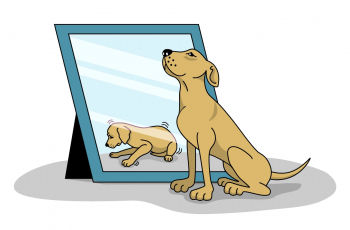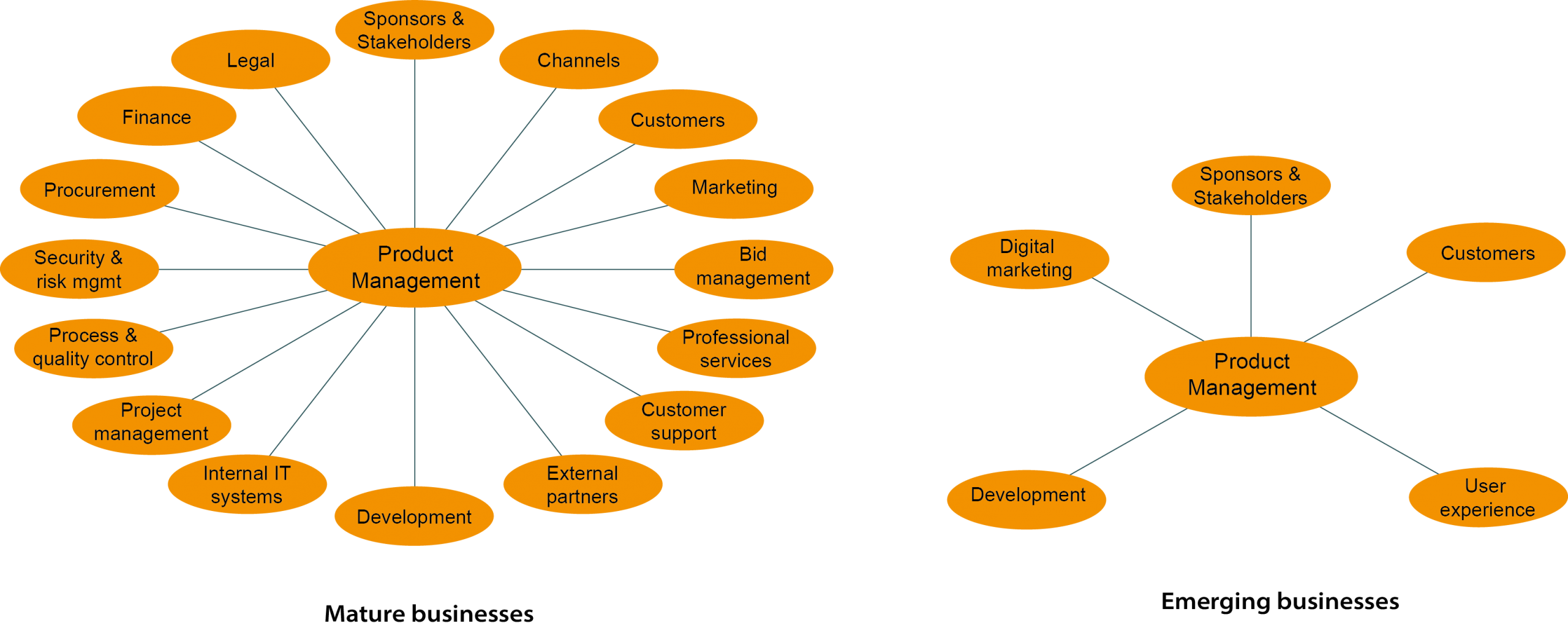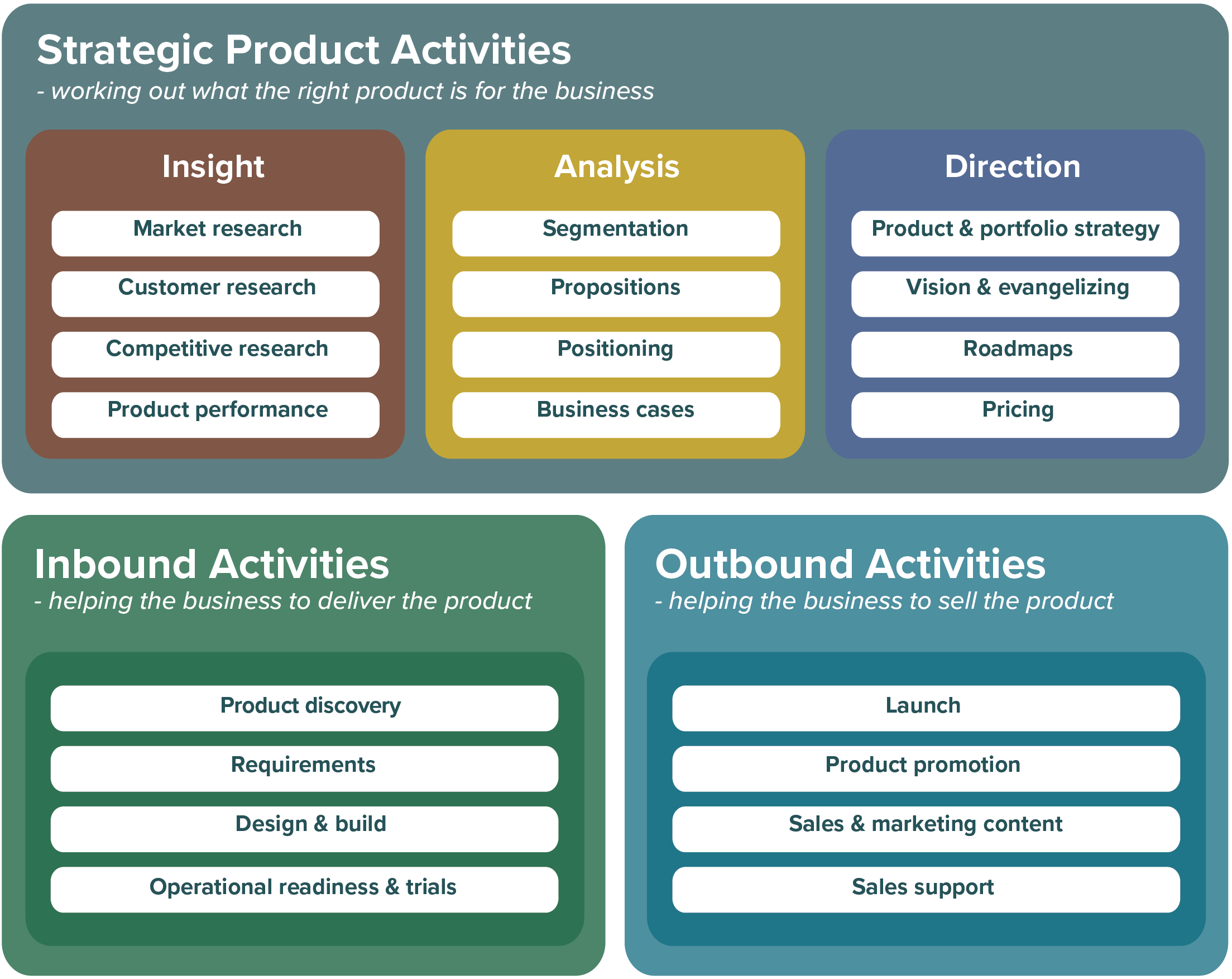
The first morning of our training course involves many discussions and exercises on the role of product management. In one of these rounds of discussions, I confided that, especially in the first few years, I often felt like an impostor in my job and on the verge of losing control.
Heavy nodding in the room confirmed a shared view.
During the break, participants told me how good it felt not to be alone with these feelings of self-doubt.
This feeling is better known as ‘impostor syndrome‘.
Though it’s not reserved exclusively for product managers, it became increasingly clear to me over my work with product people that this is a common occurrence. Reports show that around 40% of product managers experience impostor syndrome frequently or all the time and only 8% of product people say that they never experienced it.
What is impostor syndrome?
With this phenomenon, those affected cannot internalize their success and attribute it to external circumstances (“I’m just lucky”). They see praise as an overestimation of their abilities (“Oh, everyone could have done that”). On the other hand, failures, difficulties and slow progress are attributed mainly to their inadequacy (“I just can’t do it – others would”).
This results in a latent feeling of ‘winging it,’ not being able to accept one’s own real successes and thinking that you will probably soon get found out – a constant spiral of self-doubt.
Why does it seem to occur so frequently in product management?
Some people are good with the approach “Fake it, ‘til you make it” – but in product management, there seem to be factors that make this challenging. So, why does impostor syndrome seem so common in product managers?
We have identified the following reasons as possible causes:
The expectations placed on product managers
Product management is an important interface between company strategy, development, customers, sales, and many other stakeholders. Product managers typically work with (and are the interface between) many different areas as shown in the diagrams below.
As such, a huge amount of expectation is built up. We’re expected to be experts on the product, with answers to every technical question, and experts on the market, reciting the needs of customers in our sleep. We must carry the company with us through our product vision, but also face the harsh reality of product defects, strong competition, and customer complaints – solving problems and sorting things out along the way.
Important decisions need making, but they need to be right. After all, we’re sitting at the crossroads of all the key information. We must be convincing and empathetic, assertive and understanding, goal-oriented and realistic. When it comes to the product, product management must always be ready.
Often, an unclear role definition means that we feel responsible for everything concerning the product. If we’re new and want to impress, we feel we have to fulfill all our colleagues’ expectations. We risk trying to become everything to everyone.
The rest of the company is happy that there is someone who takes on this role. Any product problem they have can be off-loaded to the product manager. Product management becomes the caretaker department, the janitor for cleaning up the messes, and there is less and less time to set up the product for long-term success – after all, something else is always more urgent. These situations lead to a lack of strategic planning which stores up problems down the line.
And, it can feel good in the short term – the quick satisfaction of having fixed yet another problem. However, in the long run, it means we disappoint ourselves and others, again and again, as we fail to live up to our and our colleagues inflated expectations … and the impostor syndrome creeps in.
Dozens of views on what product managers actually do
There are numerous forms of product management, and it varies according to industry, company size, reporting line in the company, and interpretation of our role by management and other departments. It’s quite clear what a salesperson does, a buyer does, and what a financial controller does. For product managers, the boundaries, in most companies, between our role and the teams with which we interface are much more fluid. After all, it’s about our product so we want to step into any gaps to make sure it’s successful! It is also not helpful that some managers actively define product management as the point of contact for everything to do with the product.
The fact that product management is learned ‘on the job’ can lead to uncertainty as to what one’s role is and how to do things right. Success does not feel sustainable – problems dumped on product management that are not solved promptly are viewed as product management’s fault.
These are prime conditions for impostor syndrome to emerge.
Product management means constantly learning
There is no industry-wide standard qualification for product management. Many of us have previously worked in other areas, such as technical planning, Development or Sales. Our knowledge and skills in these areas, combined with a great passion for the products led us to become product managers. But in product management, we have learned that our current knowledge is not enough and that we must always keep an eye on changing technologies, customers, market movements and trends.
We had to learn to swim free, learn the role, recognize and close our knowledge gaps – again and again.
This attitude of willingness to learn is good and important, but at the same time, we are often working at the limits (and beyond) of what we know. We are, therefore, not only exposed to inadequacies more frequently but, by pushing into areas where we’re not the expert, we also actively make ourselves more aware of them.
Too little time to internalize success
Typically, there are very few days in which we can avoid the hustle and bustle of daily events. The market is moving rapidly, and it is a real challenge not to lose touch with customers and competitors. And, if that wasn’t enough, we must then develop our skills and learn new methods of market analysis, product development or digital marketing.
In between, there is little time to accept and record our successes; the fantastic customer feedback, praise from your colleague or successful quarterly results go unacknowledged – after all, these successes involved many people. Failures, unsolved problems, and complaints, on the other hand, feel more like a symptom of one’s inadequacy and resonate longer.
So, what can product managers do to avoid impostor syndrome?
Awareness of the problem: We must be aware that this syndrome exists and that we are exposing ourselves to many things that can bring it to the fore. This realization is the first step towards being able to tackle it effectively.
A clearer definition of the role: There is a saying in product management that job descriptions are usually out of date six months after taking the job. Additionally, companies are very good at defining what product management is responsible for but find it difficult to define all the product activities where product management delegates tasks to other areas. This leads to us taking a kind of ‘super-responsibility,’ while losing track of who else can execute product-related activities in the company.
A clear definition of the role and responsibilities can help here. The Product Activities Framework is a useful tool for discussing one’s role with managers and for defining which activities to delegate.
In our blog article on ‘Firefighting,’ we discuss some different approaches, such as the 5 Why’s, to escape from the firefighting mindset and concentrate on the more important tasks.
Learning and showing self-confidence in one’s abilities: Even if there are difficult days when all our efforts don’t lead to anything, we must become aware of our abilities. Recognizing and working on the gaps in our knowledge is an enormously important skill for product people. This helps generate insights that many others would not get.
At the same time, we should not take our abilities for granted, even if they seem completely normal to us now. It can help to write down a list of our strengths with the help of someone we trust and use them when the need arises to build our self-confidence.
No false modesty: We must learn to acknowledge our successes and “blow our own trumpet.” A smart way in which product managers can draw attention to their own successes, without praising themselves directly, is to send ‘thank you’ e-mails to project participants (e.g., the launch team or a sales team), selected managers, and colleagues. This shows gratitude while reflecting success on oneself.
A culture where experiments and mistakes are allowed: Product discovery and product marketing require us to be ready and willing to experiment – the first idea is seldom the best one. Agile software development and agile marketing allow us to experiment and find the most successful approach through quick idea generation, small iterations, tests, and new approaches. However, this also requires a culture in which this iterative discovery approach sees failures as a learning opportunity and allows enough time to do it.
Companies that have introduced agile development approaches like Scrum know what a change it is, and how difficult it is to break out of familiar patterns (e.g., not being able to write down all the specifications at the beginning of development).
We can help raise awareness of approaches, such as product discovery and experimentation in digital marketing, by demonstrating the benefits of these approaches (faster response to new requirements, better use of capacity, higher success rate).
Awareness that product management isn’t a race, but a journey: Even successful product managers admit to being regularly plagued by self-doubt. Shouldn’t they be happy about their obvious successes and realize that they have reached the top of the ladder of success?
Those who have learned to deal with these self-doubts often say that they have made themselves aware that there is no “arriving.” Product management is not a ladder, but rather a never-ending journey on which one always encounters new and exciting challenges.
In conclusion
I would go so far as to say that product managers who have not noticed this kind of self-doubt are probably doing something wrong! If impostor syndrome is a result of branching into areas you have yet to explore, not experiencing some self-doubt may be a result of remaining in your comfort zone. Product managers must retain their curiosity and embrace the aspiration of ‘lifelong learning.’ I believe imposter syndrome is just one side effect of our path to becoming better product managers.
Jan Harste
Product Management Coach and Product Focus Consultant, Germany




Join the conversation - 14 replies
Excellent insight into the mindset of Product Managers
We appreciate your feedback and are delighted to hear that you found this valuable!
So nice to know this isn’t just me!! Thank you!
We’re glad you found this helpful!
Happy to hear that it resonates with you, Sam!
Insightful article. Glad to know that its not just me.
We appreciate your feedback, and we’re delighted to hear that you found this to be beneficial!
Thank you for writing this article, it is spot on and so well articulated! Just reading this, so crisply describing the situation and dilemma, helped relieve stress on its own. And yes, so nice to know “It’s not just me”!!!
Thank you for your feedback, we’re so glad you found this helpful!
Thank you! From my perspective, this should become a must-do part in every product manager training course. A way less documented area of product manager work than USP, MVP and all the other buzz words.
We’re glad you found this helpful, and thanks for sharing your thoughts!
Very well written and diving straight into the what keeps going on in a Product Manager’s mind.
Thanks for the feedback, and we’re pleased that you found this helpful.